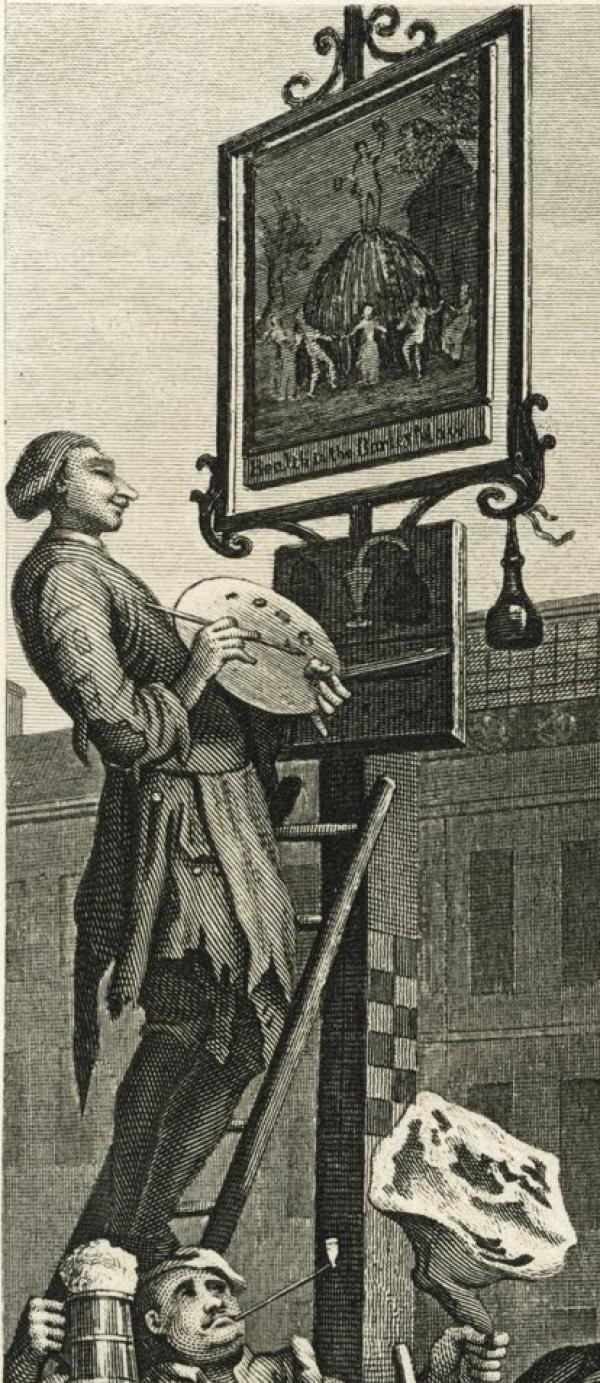There is an undoubted relish in a well-phrased insult delivered with panache and vehemence.
For connoisseurs of the form,
James Higham celebrated yesterday with a lively selection of Shakespeare's finest offerings, from the ridiculous
'Peace, ye fat guts!' to the sublime '
Thou mewling dizzy-eyed flirt-gill!'
Other sources, too, have supplied a selection of the Bard's infinite variety of invective, though devotees of the genre have doubtless already acquired the small hardback collection to be found in every Stratford-upon-Avon Gifte Shoppe.
It's notable, though, that most modern online anthologies appear to omit what is surely a classic example of the art:
'The devil damn thee black, thou cream-faced loon!'
Addressed to a quaking messenger by an exasperated Macbeth, the insult is a joy of plosive euphony but there is, as you may have noticed, a slight problem.
Some words, it seems, have an inherent magic; the mere pronunciation of a certain syllable can whip up a storm of epic proportions. This single adjective has become so fraught with significance and connotation that it takes a brave soul indeed to use it in public.
Somehow the entire language has, for some people at least, become embroiled in a false syllogism that says that, since part of the human race is officially associated with this word, its use in any context, however archaic or literally descriptive, must necessarily be connected with ethnicity.
From the moment teachers were told that they must henceforth refer only to 'chalk-boards' in the classroom, linguistic confusion has prevailed. And, if words were not enough of a minefield, the advent of social media has added a potent visual element to the offence-seeking mix.
Labour Parliamentary candidate Will Straw has defended a photo he shared online which shows him with a pair of Morris dancers with their faces painted black, after their makeup was called racist.
Jeremy Clarkson faced accusations of racism from Twitter users after he named his new pet - a small black dog - 'Didier Dogba' after the former Chelsea footballer Didier Drogba.
Admittedly it would be something of an understatement to say that Clarkson has form in this area, but he has also written in the past that his chicken are all named after famous footballers. Occam's razor - along with the limited range of shades in which the breed is available - surely suggests that the name was more likely to have been selected on the basis of sound and the continuation of a theme than on the colour of the animal's hair and, in any case, if he
did intend to provoke, then public objection is simply giving him exactly what he wants.
Meanwhile, Morris- and Molly-dancers who blacken their faces are at constant risk of denunciation, despite the roots of the custom in the use of soot or coal as a handy method of disguise in small communities, largely because of the later use of
black make-up in US theatre to caricature African-Americans. The reaction to Will Straw's photo suggests a widespread expectation that the British tradition should be abandoned because it offends modern sensibilities.
While ways round this problem can be found - in the case of one
US Molly-dance group, the interestingly creative and unexpectedly cool use of sunglasses instead - there is something deeply depressing in the amount of zeal devoted to searching out perceived racism and the climate of fear such hostile scrutiny creates.
For me, the best quote on the subject comes from a character in Julian May's 'Exiles' series of novels who, on being reproached for an ethnically-specific turn of phrase, replies:
'Honey, I have insults for every race, creed, colour and sexual orientation - I don't discriminate'.
